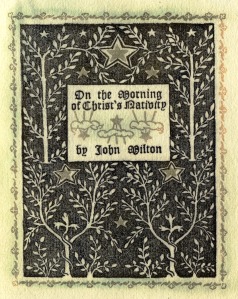If there is no God, all things are permissible ~ Fyodor Dostoyevsky
Whenever the words “I think, therefore I am” by René Descartes come up, I tend to roll my eyes, and dismiss the obvious as pointless navel gazing.
No longer, thanks to theologian R. C. Sproul and this wonderfully accessible book, which he describes as a
…sketch of leading voices in the History of Western thought.
I am encouraged that a great mind like Sproul, also had a change of mind about philosophy
What I once ridiculed now absorbs me and carries me to the brink of holy apprehension, where I tremble at my own inadequacy.
His book is a look at the thinkers of Western history, from the first philosophers: Thales, Pythagoras, Heraclitus, Parmenides, Zeno, Empedocles, Anaxagoras; to the three pillars: Socrates, Plato, Aristotle; and those who followed: Augustine, Thomas Aquinas, René Descartes, John Locke, David Hume, Immanuel Kant, Karl Marx, Søren Kierkegaard, Friedrich Nietzsche, Jean-Paul Sartre, Charles Darwin, and Sigmund Freud. (not all philosophers, but all thinkers)
I cannot adequately review this book, and I am loathe to post excerpts, because most require pages of context to be rightly understood.
I will again state that is it quite accessible. I understand now that Descartes, was not navel-gazing. He quite logically concluded that before beginning an investigation of truth, he must have a building block – an indisputable, logical truth from which to start. Consequently, when starting with the undeniable “I think, therefore I am”, it led Descartes to: “I think, therefore God is”
Indeed, most of these thinkers came to logical conclusions of God, or the one whom Aristotle named the “unmoved mover”
Aristotle is chiefly responsible for two fundamental laws of logic:
The Law of noncontradiction – nothing can be what it is, and not be what it is at the same time and in the same relationship
The Law of causality – nothing can be its own cause
Most of the thinkers accepted these laws, and most concluded, like Aristotle, there MUST BE…an unmoved mover.
It should be obvious that not all these thinkers were Deists. Indeed Nietzsche declares himself the personal enemy of God. There is no doubt Sproul stands opposed to their views, but I felt he gave them fair trial by the Aristotelian laws of logic.
Sproul opines:
We live in perhaps the most anti-intellectual period of Christian history. We affirm technology and education, but we demean the role of the mind or intellect, particularly in the religious realm.
For me, this book was an indictment of modern thought, or in more positive terms, an admonishment to return to classical thought. We learn to do, but we are ignorant and untrained in how to think. Education is focused almost entirely on utility, ignoring virtue that Socrates asserts should be inseparable from knowledge.
In conclusion, Sproul writes:
We need to reconstruct the classical synthesis by which natural theology bridges the special revelation of Scripture and the general revelation of nature. Such a reconstruction could end the war between science and theology. The thinking person could embrace nature without embracing naturalism. All of life, in its unity and diversity could be lived coram Deo, before the face of God, under his authority and to his glory.
Attributes or quotations of some of the thinkers:
Whatever is; is ~ Parmenides
Socrates: The savior of Western Civilization. Asserted that knowledge and virtue are inseparable…
Plato: student of Socrates, mentor to Aristotle
Aristotle: posited the “unmoved mover”, that God is logically necessary.
Augustine: the greatest Christian philosopher-theologian of the first millennium, arguably of the entire Christian era. Achieved philosophical synthesis between Platonism and Christianity.
Thomas Aquinas: a giant in all the intellectual world. Produced a synthesis of Aristotelian philosophy and Christian theology, asserted that philosophy apart from the Bible, can rationally demonstrate God’s existence.
René Descartes: the father of modern philosophy, asserted “I think, therefore I am”
John Locke: The father of modern empiricism
To be is to be perceived ~ David Hume
Immanuel Kant: Theistic empiricist. Nothing could destroy his personal belief in God but he also believed that a knowledge of God cannot be demonstrated by “pure reason”
Søren Kierkegaard: Father of modern existentialism
Friedrich Nietzsche: Father of atheistic existentialism, asserted “God is Dead”
Jean-Paul Sartre – describes man as a “useless passion”. Declared he was not happy with his own conclusion that God does not exist.
Charles Darwin: Proponent of macroevolution
Sigmund Freud: Founder of psychoanalysis
.






